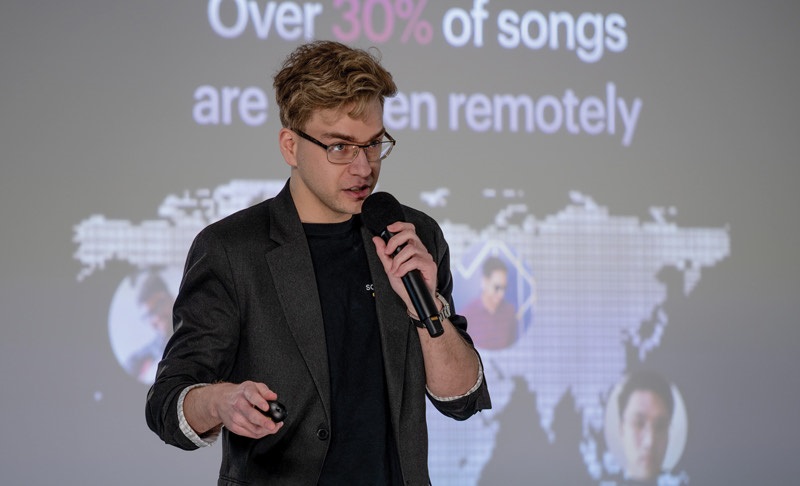It’s well known that North America suffers from a shortage of tech talent and skills. It’s a problem that Doug Robertson, president and CEO of Moncton’s Venn Centre, is addressing through targeted programming and partnerships.
Venn’s own programs are aimed at young entrepreneurs and those building a company gaining traction. Initiatives include InspireNB, an online platform that connects youth and career seekers with employers and coaches.
Robertson said he expects InspireNB, started late last year, to be used across New Brunswick.
“We’re taking the long view to address talent challenges,” said Robertson, who is the founding CEO of Venn, established in 2010 as Tech South East.
The group was renamed Venn Innovation to better reflect the fact its focus is provincewide and not just the Moncton area.
“InspireNB will help us turn around the perception among kids and adults that you’ve got to leave New Brunswick to find opportunity,” Robertson said.
Another new program is the Vennture Garage, designed to help entrepreneurs develop and validate business ideas.
Based in Moncton’s VennCentre, it offers working space and guidance to entrepreneurs. In June, a second Vennture Garage opened in Saint John.
Robertson said Vennture Garage exists to strengthen the supply of companies eligible for programs run by regional accelerator PropelICT, as well as universities and pre-accelerator programs.
“We’re aiming for a seamless pipeline of talent across the ecosystem. To date, Vennture Garage has attracted an age range that runs from high school students to people of 35 or 40 who are coming back to start a business.”
Venn also supports PropelICT by hosting its Build cohort, the program that focuses on more developed startups.
“Our primary focus is growth-stage small to medium-sized companies and those getting ready to (grow),” Robertson said. “We help them develop export market focus.”
In his development work, Robertson often draws ideas from a range of groups and locales. When he was initially seeking to boost Moncton’s innovation sector, Robertson gained inspiration and advice from the IC2 Institute, a think-tank in Austin, Texas.
In 2007, while seeking to implement the recommendations of IC2, he looked to Oulu in northern Finland, a community with many similarities to Moncton. Those included a reliance on resource industries, bilingualism and a remote location. Interestingly, Oulu had managed to generate 800 tech companies in the previous 15 years.
“Admittedly, they had … Nokia as a research base and that acted as a catalyst for their ecosystem, but we felt we could learn a lot from them and a group of us went over.”
The visiting Canadians found that the heart of Oulu’s ecosystem — the Oulu Innovation Alliance — was a non-profit funded by government, universities and industry. That all-inclusiveness is something that Robertson has prioritized since beginning work on Moncton’s innovation sector.
He also attends meetings of the Technology Councils of North America, which he describes as “a great big peer group.”
“We compare notes on best practices. It’s not competitive. We share strategies and ideas.”
Robertson was raised in Moncton. He studied commerce at Halifax’s Dalhousie University and gained an MBA from Saint Mary’s University. He later spent 10 years in Ottawa working for the Atlantic Canada Opportunities Agency.
He returned to Moncton with ACOA in 1996 to work on innovation policy.
From 2001 to 2008, he was a member of Moncton’s city council, where he was the inaugural chairman of the economic affairs committee.
Robertson said co-operation is driving Atlantic Canada’s innovation sector forward.
“Over the last few years, there’s been a movement toward a more collaborative approach. It’s making a huge difference. We’re building relationships with each other and across the region.”










